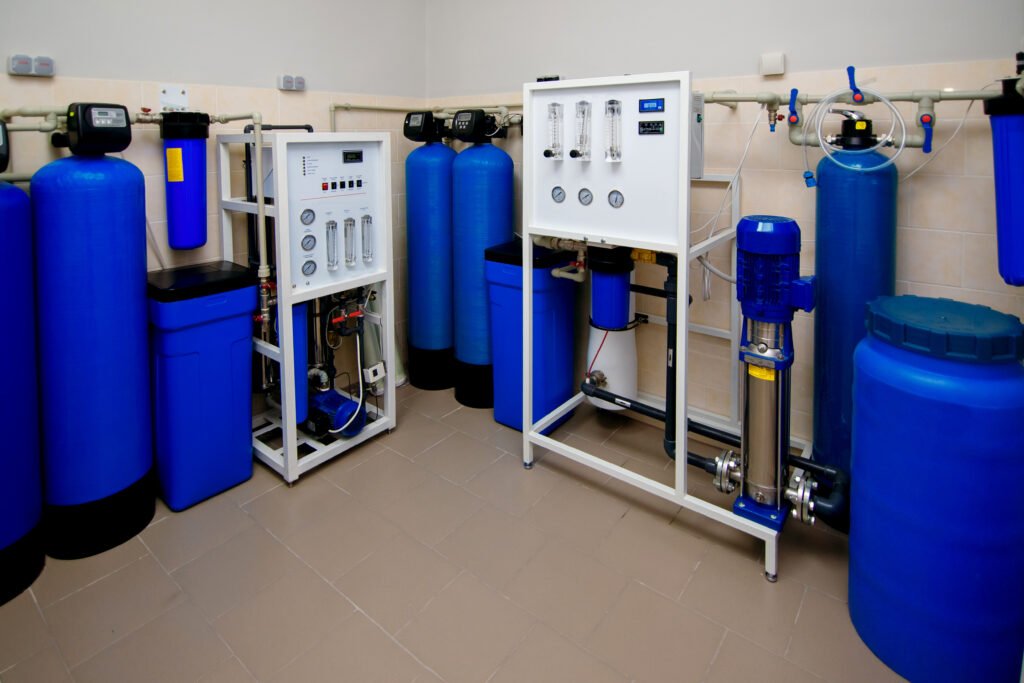Address
Unit 8, Meerzicht Business Park, 33 Kelly Road, Jet Park Boksburg, 1459
Work Hours
Monday to Friday: 8AM - 5PM
Address
Unit 8, Meerzicht Business Park, 33 Kelly Road, Jet Park Boksburg, 1459
Work Hours
Monday to Friday: 8AM - 5PM

We all prefer our water to be a little softer. Whether it’s for domestic or other use, soft water is far more useful than hard water. But it takes effort and investment to keep your water softer for longer. One way to guarantee water softness is by maintaining your water softener, which keeps your system working for an extended period.
Many types of water solutions are available today, and a water softener is one great option.
To start, what’s the difference between hard and soft water? Hard water contains high levels of minerals, such as calcium and magnesium. In contrast, soft water has low levels of these minerals. Hard water can leave mineral deposits on dishes and pipes and may affect the lathering ability of soap. Soft water does not typically have these issues.
It is advisable to ensure that your water softener operates to the best of its ability. Doing this will extend its useful life, allowing you to use the water softener for as long as possible. This will also help you say goodbye to the pesky issues associated with hard water in your home.
One such issue is the staining of possessions in your home. In a home, for example, have you ever noticed that water glasses and other home utensils become spotty even after going through the dishwasher? Or have members of your family can experience increased skin and hair dryness? Or what about their hair losing its vibrance? Not to mention a high frequency of your home appliances like the dishwasher breaking down sooner than they should.
All these are a direct result of using hard water in your home. And this is where a high-quality water softener comes in to solve the problem. Water softeners remove minerals like calcium and magnesium from your water, which causes hard water. Removing these minerals allows your family to use cleaner, softer water throughout your home.

Do Water Softeners Need Maintenance?
Like every other home appliance, water softeners do require regular maintenance. This is relatively easy to achieve, as water softeners are not complex devices. The benefit of regularly maintaining your water softening system is that it guarantees optimal performance and boosts its productive longevity.
How Do You Maintain a Water Softener?
To maintain your water softener in peak condition, ensure it has the right amount of salt. Check the salt level periodically and top up the system to enable it to function as required.
When to Add Salt to a Water Softener?
This varies between water softener brands. However, salt is a crucial ingredient in the process used to remove minerals from hard water to soften it.
For the best result, ensure the salt in your water-softening appliance meets the following measures:
Endeavour to keep up to date with your softener’s salt level, which keeps blockages or electric shortages from harming your system. Specific water softening systems allow users to monitor salt levels. They also issue alerts when the level is too low.
By using the correct level and salt type, your water softener can help produce cleaner, soft water. And your supplier can quickly help out.
How Many Times Should a Water Softener Regenerate?
There are two determinants of regeneration frequency. A fixed regeneration time interval often set depending on the hardness of the water you’re softening is the most common. However, you can also determine your regeneration frequency based on how much water usually flows through the system.
Regeneration is a cycle in the water softening process that recharges the resin beads used to remove calcium and magnesium salts from your water. To make this possible, water softeners have a second tank called the brine tank to hold a salt-water solution.
For regeneration, the hard water (salt-water solution) flows from the brine tank through the resin tank so that calcium and magnesium from the beads can flush the minerals from the system.
This has to be accurate, however, as when the water softening system is undersized, it regenerates too often and thus wastes too much water. On the other hand, oversized regeneration is infrequent and requires too much salt. The ideal regeneration interval is between 4 to 7 days.
How Often Should a Water Softener be Cleaned?
When used every day, a water softener does not require special attention beyond keeping the salt tank filled. However, your system will require the occasional cleaning if:
To clean it:
Be proactive when maintaining the salt levels, regenerating your softener, and other needs-based cleaning activities. These increase the productive lifespan of your water softener.
How To Know Your Water Softener is Working Properly?
Do the soap test to tell if your water softener is working. This home test shows you how well soap lathers in your water. Though not precisely scientific, the soap test is a reliable preliminary test of water hardness. Soft water creates a substantial lather, while hard water won’t create the same amount of foam. To be sure, schedule a system inspection to test your water and your softener.
A water softener working correctly must significantly reduce the hardness of your water. If hard water persists even after passing through your system, your softening system likely needs some fine-tuning.
Common signs of persistent hard water usually include:
Lifespan and Replacement of Water Softeners

What is the lifespan of a water softener?
A high-quality, well-maintained water softener can remain productive for over a decade.
How Much Does It Cost to Replace a Water Softener?
The cost of replacing a water softener depends on its size, capacity, and system features.
To find out more or if you have any questions on water softeners or water treatment in general, contact us here, and we will be glad to help.